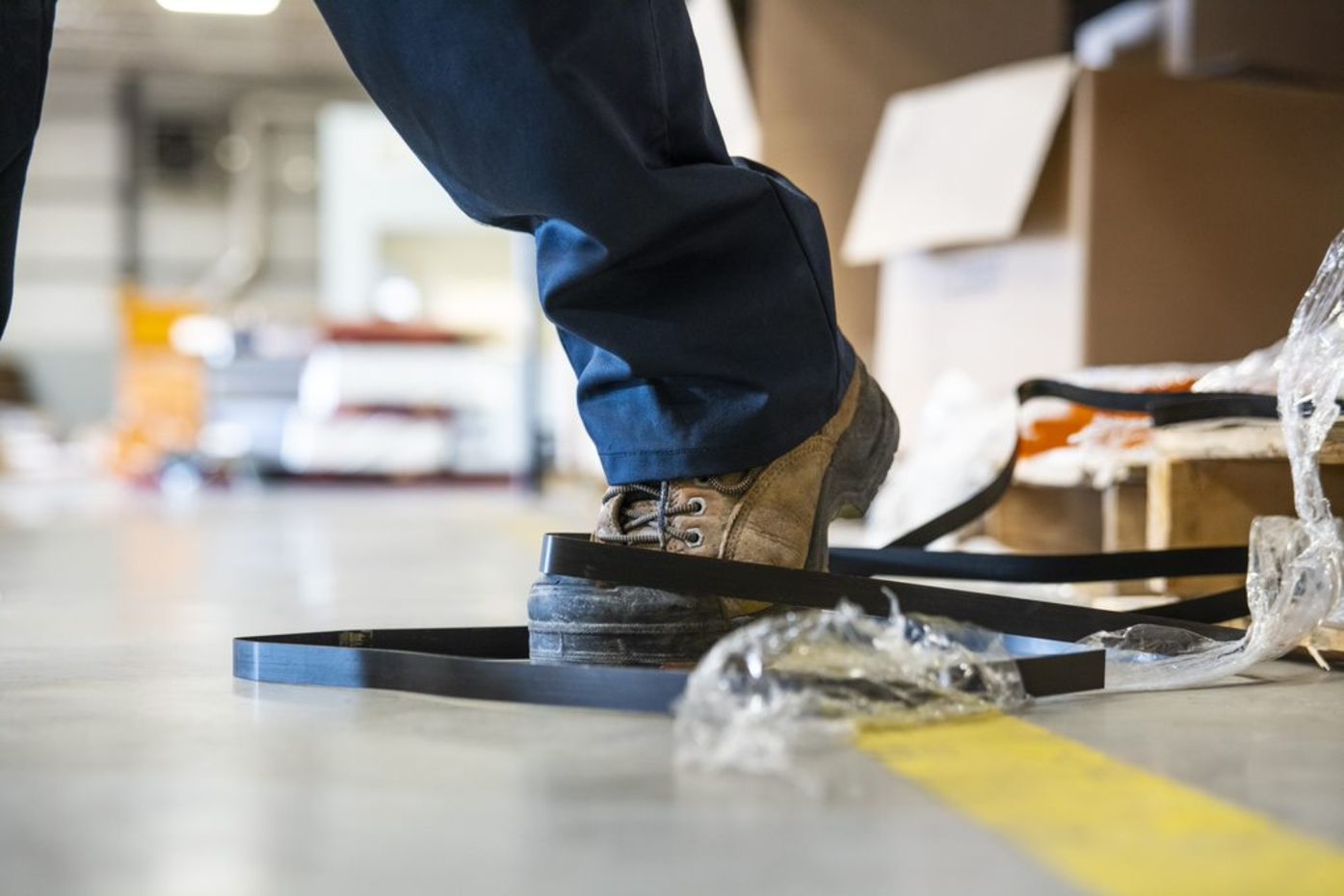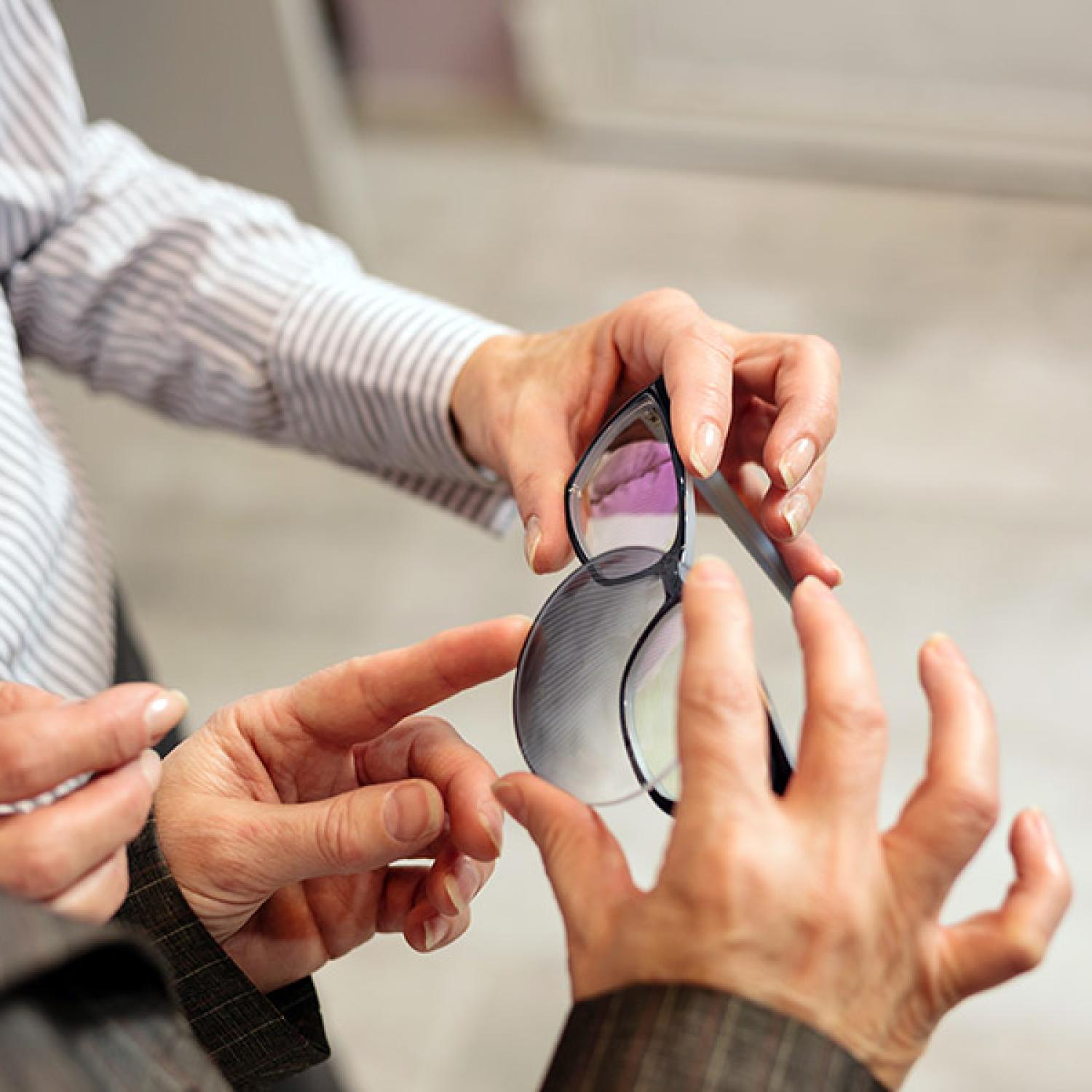Why do opticians need insurance?
Accidents at work
A customer falls in your eye clinic waiting area while your receptionist is taking in stock. They say a spillage of saline solution was the cause and take you to court citing health and safety failure. Even if you don’t feel your optician business is at fault, such legal proceedings can be costly. By including public liability cover in your insurance policy, you gain support with legal fees and compensation demands, helping you to feel protected as you practice.
An injured employee
In time, you may need to employ a dispensing optician or assistant to fit glasses and repair frames while you’re handling eye tests. When a new employee joins the practice, there may be safety implications if they aren’t up to speed on tool use, however. Should they experience an accident and say the correct training wasn’t given, your clinic may lose time and money mounting a defence. Employers’ liability cover keeps you in a position to defend yourself and keep disruption to a minimum.
Cyber crime target
Using computers to store information about customers’ prescriptions and delivery details is standard practice for an optician or optometrist. You might not consider your website booking form to pose a threat, but if a hacker launches an SQL injection attack against this infrastructure, they could steal data and demand a ransom in return. Insurance can protect an optician by responding to such cyber events both practically and financially.
What insurance is available for opticians?
Public liability insurance
An optician can be held liable if someone is injured or their property damaged as a result of something that happened on business premises or while an employee was working away – for instance, delivering contact lenses. Risk isn’t always related to your work – something as simple as an injury sustained in your waiting room could create a compensation claim. If this happens, your Hiscox public liability insurance can help cover legal defence costs and any potential compensation pay-outs.
Cyber and data insurance
Cyber insurance can help to protect an optician’s finances and reputation if there’s a threat to computer systems or sensitive data. Collecting and maintaining adequate client records is a key professional standard listed by the General Optical Council (external link) – but as communication moves online, there are fresh risks involved. Cybercrime aside, it’s possible that your optical assistant could accidentally share private information, if they send an invoice to the wrong person, leading to expensive complaints. With Hiscox Cyber insurance, you can enrol your employees in training to enhance their knowledge.
Employers' liability insurance
Your business revolves around taking care: of your clients, their eyes and their frames, too. However, things can still go wrong – if your optician business employs any staff, then employers’ liability insurance could provide vital protection in the event a current or former employee complains of a work-related injury. Health and safety issues can strike unannounced or build over time. An ocular tonometer might fall on your newest apprentice, or an established optician could experience symptoms as a result of breathing cleaning product chemicals. Either way, Employer’s liability cover helps protect from the expense of claims.
Each optician’s insurance requirements are unique. If you own your premises, then property insurance could prove important, while personal accident cover may benefit locum optometrists.
If you’re not sure what you need, tell us a little more about your optician’s business. We’ll help you to build your quote and explore any other insurance needs.
Build my coverInsurance for opticians: FAQs
What insurance do I need for my optometry equipment?
To insure valuable optometry equipment, select contents insurance as part of your property cover.
This protects machinery such as phoropters, retinoscopes and retinal cameras – as well as less specialist equipment such as computers – in the event of a break-in or accidental damage. Stock is covered, too, for added reassurance if your centre sells designer eyewear.
To protect items while you’re away from the practice at events such as recruitment fairs, consider portable equipment insurance.
If I upgrade my equipment, is it automatically covered?
Equipment isn’t automatically covered if you upgrade it. To keep cover in place, let us know when changes are made so we can help you adjust policy details accordingly.
Understanding the exact nature of your optical instruments and other equipment helps to calculate how much cover you require. This might include knowing the type of optical lens groover you’re using, or the laptop model you work from.
Failing to notify of increases to equipment value could create problems in the event of a claim and might mean you’re underinsured. Find out more about underinsurance in our glossary of terms.
I’ve been in an accident and can’t work temporarily, can insurance help?
Yes – business insurance can help safeguard your income against the risk of accidental injuries. Add personal accident insurance to your policy to benefit from this type of cover, which can provide a weekly benefit payment to you or another insured member of staff.
If the injury creates a long-term problem that leaves you unable to practice, this insurance can also help with medical expenses and the cost of retraining.
Related articles and guides

What is a phishing attack?
Our FAQs provide answers to common questions about cyber security, including in this guide to phishing attacks.

How much does public liability insurance cost?
Learn more about the factors you need to consider when purchasing public liability insurance and choosing your cover limit with our guide.

Real examples of commercial insurance for retail businesses
How Hiscox business insurance helped our retail customer recover the cost of destroyed stock after a misunderstanding with a courier.
